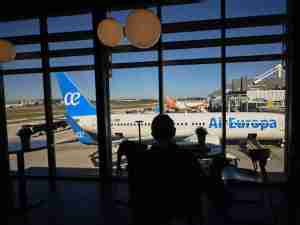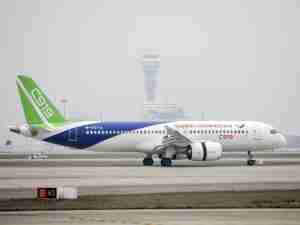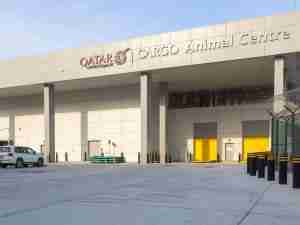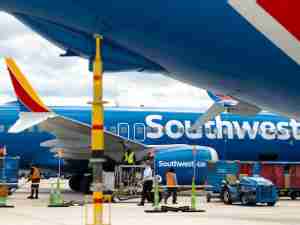Deutsche Lufthansa AG said earnings won’t advance in 2024, and expects that first-quarter losses will widen as the company grapples with disruptions from labor strikes and the cargo boom that took hold during the pandemic ebbs.
Europe’s largest airline group estimates that the strikes in January and February cost it at least €100 million, with hundreds of thousands of passenger journeys disrupted. While Chief Financial Officer Remco Steenbergen said the carrier will maintain its 8% operating margin target for 2024, the walkouts in the first quarter could have an impact on full-year results.
The German airline group has seen operations disrupted by waves of strikes, including a two-day walkout this week that disrupted journeys for almost half a million passengers, Lufthansa said. The renewed flare-up of labor disputes is reminiscent of lengthy battles that Lufthansa waged for years with groups like pilots before the pandemic, as employees once again demand a greater slice of profits derived from resurgent demand.
Lufthansa reported adjusted earnings before interest and tax of €2.68 billion ($2.92 billion) for last year, compared with €1.52 billion a year earlier, giving the company an operating margin of 7.6% — close to its target margin of 8%. The carrier group will pay a dividend of 30 cents a share, saying it wants to pay out 20%-40% of profit to shareholders.
“The desire to travel is as strong as ever,” Carsten Spohr, Lufthansa’s chief executive officer, said on Thursday during a press conference. “This desire that we feel is offset by various bottlenecks” which limit supply such as delayed aircraft, unscheduled engine maintenance and staff shortages.
Lufthansa was little changed in Frankfurt trading on Thursday. The stock has dropped 12% so far this year, making it the worst European airline in the Bloomberg World Airlines Index in the period.
Lufthansa is still trying to complete the purchase of a stake in ITA Airways, the Italian successor to Alitalia, an endeavor that’s been held up by competition reviews in Brussels. The Italian airline would add to the group’s holding of national airlines, which include carriers in Austria, Switzerland and Belgium.
The company said on Thursday that it’s still expecting approval of the deal “over the course of this year” and that it’s working closely with European Commission to conclude the transaction.
The company said its adjusted operating loss in the first quarter would be higher than in the previous year, when the deficit reached €273 million. At the same time, the load factor for the next three months exceeds last year’s level, highlighting continued demand for tickets.
Average capacity this year will stand at about 94% of 2019 levels, compared with 84% last year, Lufthansa said. That’s one percentage point lower than the capacity that Lufthansa had predicted for this year, back in November.
“Capacity continued to be restored but seems to have lost steam,” said Alex Irving and Tobias Fromme, analysts at Bernstein, noting a “more cautious pace of capacity restoration at Lufthansa versus other European peers.”
Overall revenue will increase “significantly,” with unit revenue at the passenger airlines “stable or only slightly below” the previous year’s figure, Lufthansa said.
Like some other airlines operating Airbus SE’s A320neo model, Lufthansa has been dogged by maintenance issues on the Pratt & Whitney geared turbofan engine, forcing a growing number of planes to undergo out-of-cycle inspections. Lufthansa recently placed a large order for Boeing Co.’s competing 737 Max model, seeking to diversify its narrowbody fleet that’s built around Airbus jets.
The company is the last of the three main European airline groups to report results for 2023. Last week, Air France-KLM and IAG SA, the parent of British Airways, unveiled their numbers. Both companies cautioned that some capacity growth may slow this year as geopolitical tensions deter the flying public and corporate travel remains below pre-pandemic levels.
Air France-KLM predicted capacity growth for this year of about 5%, while IAG is targeting 7%.
Last month, Lufthansa announced a wholesale shakeup of its management board, with four of the six members departing, including Steenbergen. He has since said he’s joining Swiss specialist chemicals maker Sandoz Group. Lufthansa’s Michael Niggemann will take over responsibility of the finance function on an interim basis.











